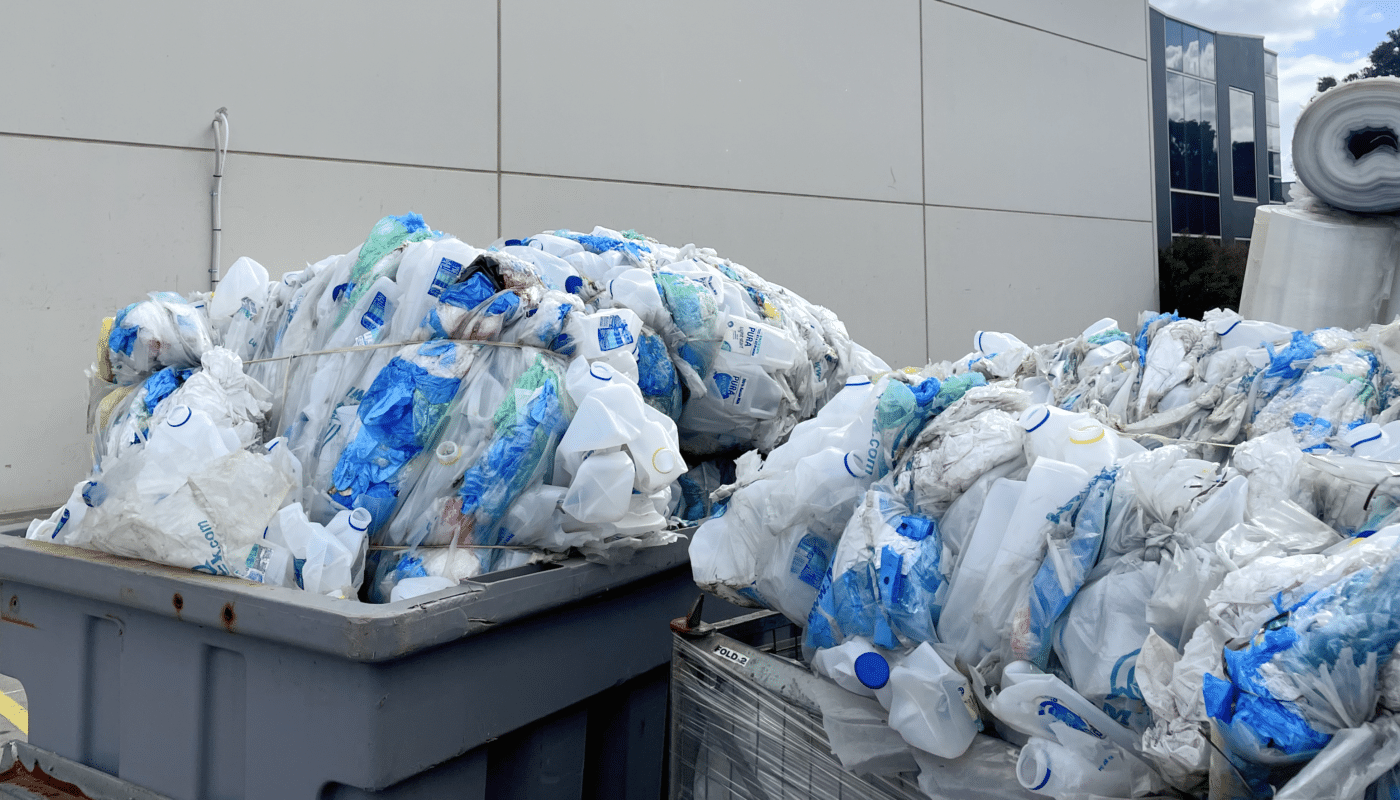
Share this post on social media
One of the biggest challenges facing businesses today is the pollution caused by the accumulation and mismanagement of their plastic waste, which is considered a highly dangerous environmental emergency that poses a significant threat to the health of our planet (Global Environmental Facility, 2019).
Despite the widespread use of traditional plastic recycling methods, they often fall short in handling all types of plastic waste, which would need a different kind of processing to be recycled. Thus, the optimal solution to this issue is chemical recycling.
The goal of this blogpost is to provide the reader with all the necessary information about chemical recycling, including its environmental and economic benefits, potential for the future, and guidelines for determining when it’s the best option for plastic recycling. By the end of this post, readers will have a comprehensive understanding of chemical recycling and be well-informed before implementing it in their recycling practices.
A post by Alice Frassin
Chemical recycling is a process of breaking down plastics into their constituent chemical building blocks, which can then be used to make new plastic products or other chemicals. There are three main types of chemical recycling, such as pyrolysis, gasification and hydrogenation.
Nowadays, there are many companies in the field of chemical recycling, each with their own unique approach to addressing the challenges of plastic waste. Depending on a business’s specific needs, they may choose to specialize in a particular type of chemical recycling to best meet their objectives.
At Biofabrik, for example, we sell and distribute advanced pyrolysis technologies, as we believe it offers an efficient and effective solution for transforming plastic waste into valuable resources.
In the past, particularly in the 90s, various chemical recycling projects were started, but ended up failing due to the immaturity of the technology at the time, hence a variety of operational issues (The European Chemicals Agency, 2021).
The process was expensive and difficult to implement, while its products were often of lower quality compared to traditional methods.
However, recent advancements in technology have made chemical recycling an effective and economically viable option again: the process is now more efficient and cost-effective, while the products have highly increased their quality.
Additionally, as the need for sustainable waste management solutions becomes more pressing, chemical recycling is gaining increasing attention as a potential solution.

Overall, chemical recycling is a more effective way of managing plastic waste than traditional methods such as incineration or landfilling (Plastics Europe, 2022) as it allows for the plastic to be reused rather than being discarded, while creating a profitable business case.
Mechanical recycling has long been the ecologically as well as economically best go-to method for plastic recycling. It is suitable to process soft plastics such as polyethylene terephthalate (PET) and high-density polyethylene (HDPE), which can be easily melted and reshaped.
However, this is only effective for certain types of plastics. Current mechanical recycling methods reach a technical limit and cannot process mixed or contaminated plastics, which are typically sent to landfills or incinerated, leading to environmental pollution.
Chemical recycling, on the other hand, can better handle the plastics that are not recyclable by traditional means, thus offering a solution to improve inadequate plastic waste management practices and the environmental impact associated.
It is important to note that chemical and mechanical recycling are not in competition, but rather complementary approaches that can be implemented in combination.
Mechanical recycling has been utilized for many years and will certainly continue to play an important role in plastic recycling, meanwhile, chemical recycling offers new solutions that can extend the life of even hard-to-recycle plastics.
Together, these two methods can help achieve a more circular economy for plastics, reducing waste and promoting sustainability.

Chemical recycling is only one of the viable methods for plastic recycling, therefore the necessity, success or the benefits of its implementation will highly depend on different factors - such as types and amounts of plastic waste - and on the specific needs of each individual business case. We recommend consulting a specialist on the matter.
If your company is generating a significant amount of plastic waste, after having gained an understanding of how chemical recycling can profitably assist your waste management, we have compiled a list of steps to help you assess the feasibility of implementing it to your practices and make more informed decisions.
A Guide to Plastic Waste & Chemical Recycling

Consider the location of your company and the availability of chemical recycling facilities, as it requires specialized equipment and infrastructure.
For instance, if you are incurring high logistic costs due to not close or readily available resources, it is worth considering a decentral approach, which will help you treat the plastic waste by yourself, on site.
Determine if it is a financially viable option for your company: make sure you research the costs and potential benefits of chemical recycling and compare them to other waste management options or systems you might be using at the moment, as they might have potential to be paired together.
The calculation should include all the variables mentioned so far, such as the condition of the waste, the value of the input and the assumed quality of output, and the operational and logistic costs. As it is usually a complex calculation, especially in the beginning, we always recommend talking to a professional.
When it comes to incorporating chemical recycling into waste management systems, it is essential to seek the guidance of experts in the field. The advice of experienced professionals can help you determine the suitability of your plastic waste for chemical recycling and provide invaluable advice on how to implement this technology effectively.
Chemical recycling can be a complex and challenging topic, as there are always a lot of factors to keep in consideration. Consulting with an expert can help you navigate the various aspects involved, making it easier to achieve a successful and sustainable transition.
If you have determined that your waste is suitable for chemical recycling and if one of your most pressing goals is reducing your company’s environmental impact, the next step is to investigate the market and choose the solution that best suits your needs.
There are many options available for companies looking to implement chemical recycling, and it is important to carefully research and evaluate them to find the right fit for your business, as the success potential of specific chemical recycling must be evaluated case-by-case (The European Chemicals Agency, 2021).
By selecting a solution that effectively manages your plastic waste, you can demonstrate your commitment to sustainability and support the growth of your industry, while tackling your waste problems and moving towards a more sustainable circularity of plastic.